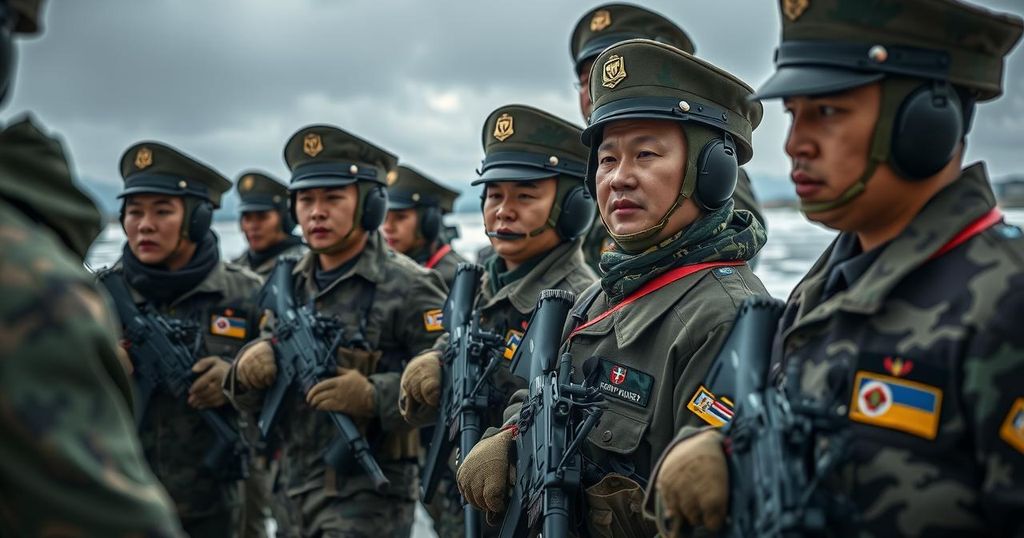Understanding the Role of North Korean Troops in Ukraine’s Conflict

The involvement of North Korean troops in Ukraine’s war, initially thought to be limited to non-combat support, has shifted as they reportedly engage in combat roles. Drawing from elite troops, this collaboration serves Russia’s manpower needs while providing North Korea with financial and technological gains. The effectiveness and implications of this partnership raise significant concerns for South Korean national security amid escalating regional tensions.
Recent reports indicate that North Korean troops have engaged in combat operations supporting Russia in the ongoing war in Ukraine. Initially rumored to assist in non-combat roles due to their lack of battlefield experience, the presence of these troops has been re-evaluated as they are believed to belong to the elite 11th Corps, also known as the Storm Corps. Their training includes infiltration, sabotage, and psychological resilience, potentially rendering them more effective than initially presumed. Furthermore, Moscow’s collaboration with Pyongyang appears mutually beneficial as Russia seeks additional manpower amidst significant casualties, while North Korea may acquire financial compensation and advanced military technology in return. Although North Korea boasts a substantial military with 1.28 million active soldiers, their combat experience is minimal compared to other military forces. As noted by Mark Cancian from the Centre for Strategic and International Studies, the troops are highly indoctrinated but display low readiness and combat experience. Nonetheless, the North Korean elite troops are reportedly receiving extra training from the Russians, preparing them for the specific conditions in Ukraine. The strategic outcomes of this alliance are concerning for South Korea, especially during a time of elevated tensions on the Korean peninsula. Following incidents such as the destruction of roads connecting North and South Korea and accusations of hostile surveillance, South Korea has expressed deep apprehension regarding the North’s possible increased military efficacy fueled by combat experience in Ukraine. The situation raises alarms that North Korea could emerge with enhanced capabilities that threaten Seoul’s security. The partnership is driven by clear needs; Moscow faces severe manpower shortages due to significant losses, while North Korea aims to bolster its economy through foreign deployments. Intelligence suggests that Russia has suffered heavy casualties, prompting the search for alternative combat forces, including foreign soldiers. As this military collaboration unfolds, international observers remain alert to the broader implications, including potential escalations of conflict and changes in military dynamics in the region.
The involvement of North Korean troops in the conflict between Russia and Ukraine marks a significant development in the geopolitical landscape. Initially dismissed as merely rumors, increasing evidence suggests that North Korea has begun sending troops to support Russian military efforts. This engagement is particularly noteworthy given the longstanding tensions between both Koreas and the West, while South Korea watches closely, wary of their adversary gaining potentially superior military skills. The context of the war has prompted nations to reevaluate alliances and the consequences of such partnerships.
In conclusion, the deployment of North Korean troops to Ukraine reflects a complex interplay of military needs and geopolitical strategies for both Russia and North Korea. While questions remain regarding their combat effectiveness given limited experience, the role of these elite soldiers could significantly affect the battlefield dynamics. Moreover, the ramifications of this partnership extend beyond immediate military concerns and highlight deeper strategic implications for regional security, particularly for South Korea.
Original Source: www.bbc.com






